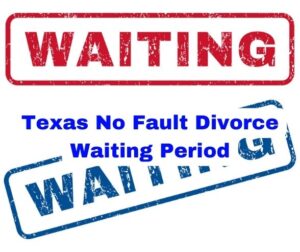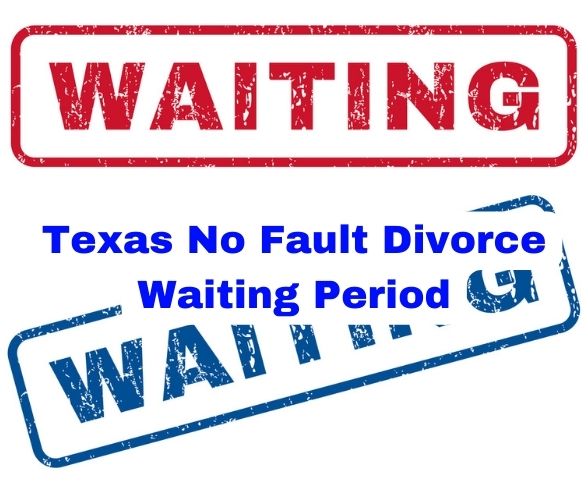Divorce is a complex and stressful process. The process begins when you or your spouse files a divorce petition. The spouse filing for divorce is called the petitioner and the other spouse is the respondent. After the petitioner has filed for divorce the respondent receives legal notice of the divorce petitions.
The notice makes the respondent aware that their spouse has filed for divorce and that they need to respond to the divorce petition within a specified time. If the respondent fails to respond on time, the court may grant the other spouse a default divorce.
Contents
Is There A Waiting Period For Divorce In Texas
What Is The Waiting Period For Divorce In TX
 Texas has a mandatory 60-day waiting period after filing for divorce. That means that a court is unlikely to issue a final divorce decree within this waiting period. The waiting period applies for a contested and uncontested divorce.
Texas has a mandatory 60-day waiting period after filing for divorce. That means that a court is unlikely to issue a final divorce decree within this waiting period. The waiting period applies for a contested and uncontested divorce.
The waiting period allows couples to rethink their divorce and possibly reconcile, or to give the couple time to think about the possible outcomes of the divorce. These include outcomes for child support, custody, property division, and alimony or spousal support.
When Courts Issue Final Decree Before Waiting Period Is Over
There are exceptions to the 60-day waiting period. A court can waive the waiting period if one spouse is a danger to the other spouse and their children. This is especially true in families with a history of domestic violence. Another exception is when there is an active protective order issued against the respondent.
These exceptions mean that the respondent gets a final divorce decree before the 60-day waiting period expires. This helps protect the petitioner and their children.
Child Support And Child Custody
Can You Waive The Waiting Period For Divorce In Texas?
As far as child support and child custody are concerned, the court will always consider the child’s best interests. Since the children need support during the waiting period, the court will issue temporary orders that ensure the child’s needs are met during the divorce process. These orders ensure that the stability the children need and their standard of living are not affected by the divorce process.
How Property Division Works In Texas Divorce
Some assets that constitute marital property include cars, homes, debts, retirement accounts bank accounts, and more. These assets are owned equally by both spouses but the court doesn’t have to divide them 50/50.
But property either spouse owned before the marriage or received as inheritance or a gift during the marriage is referred to as separate property. Spouses get to keep their separate property but before that, they have to prove that an asset or property is separate property. Property division is a complex process which means you need an experienced lawyer to guide you.
What Are Contested And Uncontested Divorces?
When the parties that are divorcing agree on all issues involving property division, child custody, child support, and more, it is an uncontested divorce. An uncontested divorce is the better option if you and your spouse want an affordable divorce that does not take a long time to finalize.
A contested divorce is a divorce where the spouses disagree on at least one issue. Spouses that disagree can either take their case to trial or use mediation.
